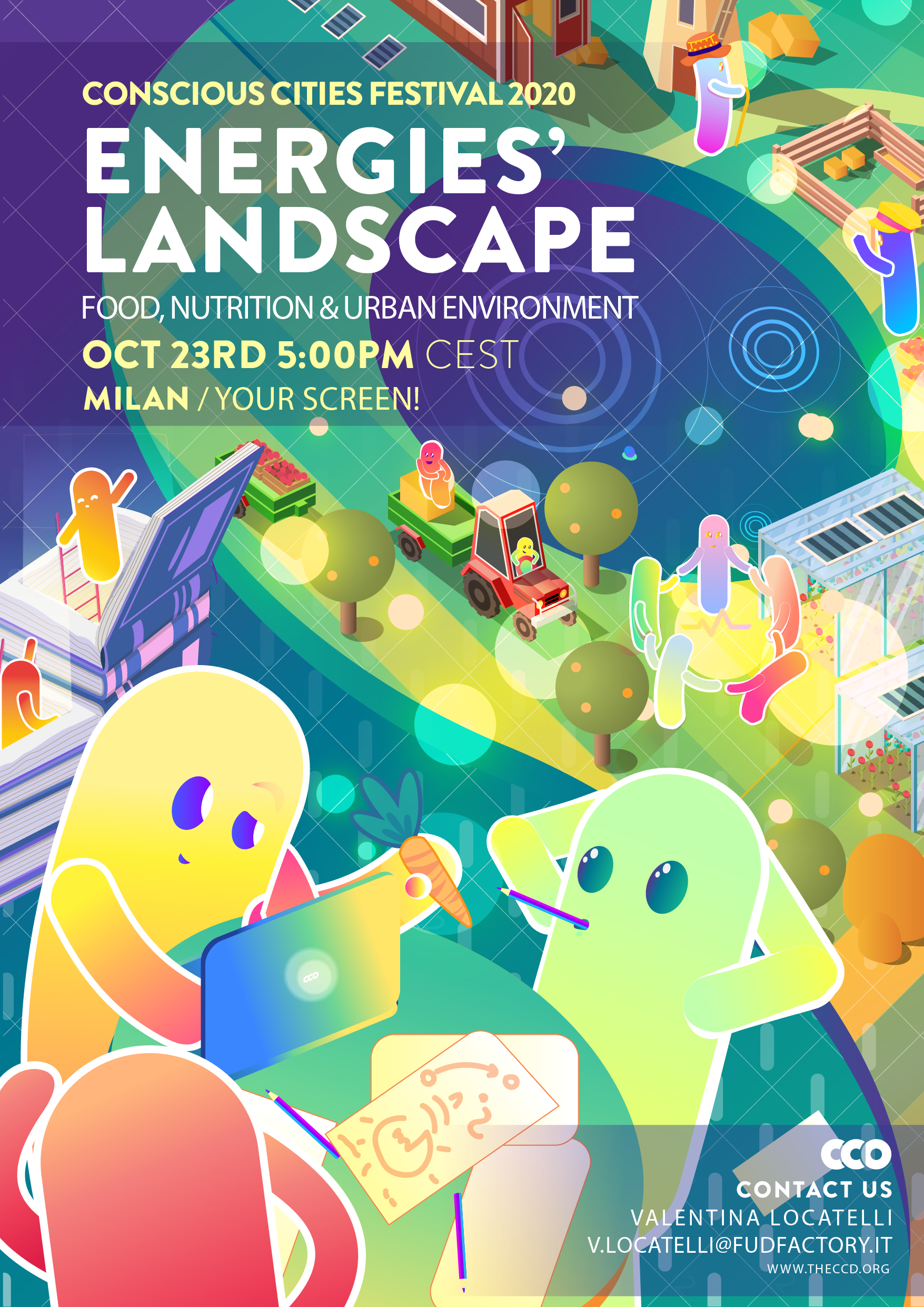*** THIS EVENT WILL BE HELD IN ITALIAN ***
Available with English subtitles in the coming days
How can we assess how cities, outside their urban limits, affect the ‘domesticated’ country landscape and how they have profoundly marked the natural environment?
Undoubtedly, many factors can be listed as co-responsible for this outcome, although one in particular has been underestimated: energy. We are used to thinking about energy as matter that can move systems, machinery, and plants. Still, we often forget that humans also consume energy. All around the world, there are more than seven billion people, who, every day, consume energy at very different levels. In so-called developed countries, people absorb a massive amount of food and beverages, to keep up the strength required to handle miscellaneous tasks and activities.
At rest, sitting at the table in our homes, each one of us utilizes 20-25% of the total amount of energy we take in daily through food just to keep our brains functioning. Under stress, the amount of energy we use for this purpose increases considerably. Anatoly Karpov, the great chess player, could lose up to three kilos of his weight, consuming six thousand calories, due to the mental effort required to play a game of chess. As chess players navigating through urban chaos, we all have to spend extra energy to cope with the unforeseen, incorrectly designed spaces for interaction or all the stressors associated with indoor areas that are not exactly well-conceived. Like Anatoly Karpov, we burn an enormous quantity of calories due to the stress generated by the constant need to recalculate our interaction with the environment. In this harmful state of affairs, our brain is forced to turn off our automatic driver, our pre-reflective ways of modulating our relationship with spaces, just like a plane in a storm.
A surplus of mental work triggers an excess of nutrition to balance energy consumption. Can we try to figure out how many calories humanity wastes each day in this balancing act? Fatigue added to the primary exertions involved in human relationships – in the family and at work – creates an overload that sometimes drives many people to abuse junk food, drugs, and alcohol.
Is there a dangerous link between this kind of food production and these stressors? What does this mean for the agro-industrial organization of food chains and for the landscape outside cities? Do our ways of managing both the countryside and wild nature mirror the wrong way we design cities?
If we could calculate the number of calories consumed badly by people every, divided up for each country, and then translate this figure into the energy required to produce it, we could probably recognize this daily energy imbalance as a directly outcomes of mistakes embedded in city planning.
Can we start to analyse how the frustration and stress involved in constantly dealing with all this effort influences our choice of foods containing more fat, proteins and glucose, thereby laying the foundations for a streamlined way of managing food production on a global scale, which has such obviously destructive consequences on the rich and varied country landscape outside cities? Maybe, this approach now could also resonate with those regarding, the penetrations into the wilder nature searching wood, minerals, and other natural resources, in too many areas of the world. Does this remind us of something associate with the spread of a virus?
It is time to join the dots. Our artificial environment affects domesticated nature, inside and outside our cities, and it also affect the delicate balance between ecosystems in wild nature. Cognitive enhancement cannot be supported by an insane city. So, we need to combine all these challenges into one, if we want to restart not peacefully accepting this old devasting framework, namely from the blind street inside which we brought future generations.
The event is organized by TUNED | Lombardini22
With us in this project:








